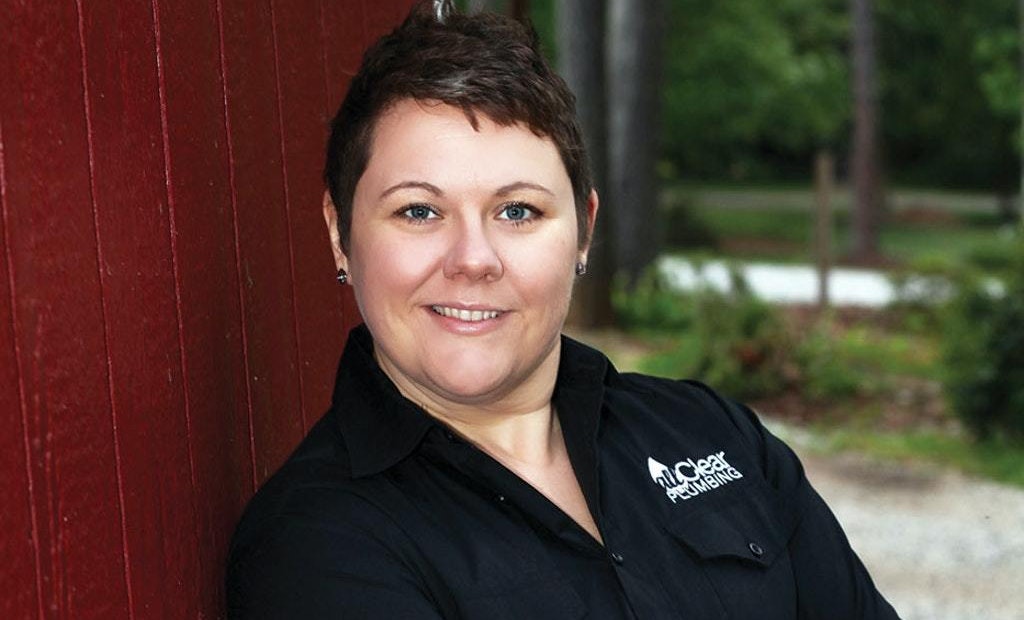Interested in Business?
Get Business articles, news and videos right in your inbox! Sign up now.
Business + Get AlertsThere is a thing called “imposter syndrome.” It’s a persistent fear that you aren’t the expert everyone says you are. It’s the feeling that you don’t deserve your success.
It’s something that can crop up in this industry. The expectation for any service business is that we do it all and be it all. Expert technicians in the field as well as expert businesspeople. Pumping septic tanks and running internet marketing campaigns. Staying up to date on OSHA and human resources laws. It’s overwhelming.
None of us are experts at it all. The jack-of-all-trades is master of none, right? Yet unrealistic expectations remain, so I’d say a little imposter syndrome is natural.
The one-person wonder is an illusion
We all have the same 24 hours every day. So why does it seem like some people manage to get so much more done?
You know that person. They seem to be in five places at once. They seem to do twice as much work as you and have a filter-perfect Instagram feed and a full staff. There are a few possible explanations for this annoying person:
Option 1: No sleep. They could be one of those freaks who only needs four hours of sleep a night. Good for them. They have more waking hours in a day. If you aren’t predisposed to this, it will kill you. Not a solution, move on.
Option 2: Focus and priorities. How much TV do you watch in a day? Don’t answer that: I hate the question. I hate it because if the question was “How many hours do you spend playing with your kids?” it would be judged under a different lens.
My point is that we should live our lives based on our own focus and priorities. The quality of one person’s life can’t be judged by the priority of another.
The real questions are “How focused are you on your business?” or “Is your business the No. 1 priority in your life?” It’s OK if the answers are “not very” and “no.” I give you permission to spend hours of the day playing with your kids. Or watching TV, if that’s your thing.
Someone clocking 18 hours of work a day is going to get further faster than the person clocking eight. They are making choices that show a different focus and priority. They will see different results.
Option 3: Delegation. The way to do a superhuman amount of stuff in a day and have a good quality of life is delegation. The person who delegates learns how to provide good direction. They learn to trust others. They hold others accountable.
If it looks like one person is running an empire on his or her own, it’s an illusion. It means that they aren’t willing to share the spotlight with their team. They have a team.
If they are actually doing it themselves, that success is only surface deep. Some other part of their life or business is an absolute mess. No one can do it all with perfect execution. It’s not possible. And you not being able to do it all doesn’t make you an imposter. It makes you human.
Show your underbelly
To overcome imposter syndrome, we have to get a little vulnerable. Primal instincts tell us to do the opposite and hide our weaknesses from perceived threats. It’s evolutionary. We only show the best of ourselves to other people.
Insecurities stay buried and covered up in lies. Everyone seems perfect at everything. This posturing creates a terrible cycle — we don’t know stuff, but we won’t admit it and never put ourselves in a position to learn.
Being open to learning and asking for help is one of the most powerful things we can do as human beings. We are only hurting ourselves with the stubbornness. We miss opportunities to improve ourselves and our businesses.
Do you laugh and point when someone admits they don’t know something? If you do, stop being a monster. If you don’t, congratulations on being a decent human being. Now give yourself the same grace you give others. Ask questions. Admit ignorance. It doesn’t make you look stupid. It makes you look human.
Don’t be afraid to fail
You wouldn’t have the success you have if you didn’t take a risk at some point. Once upon a time, you pushed yourself a little further than you had the day before. That’s not luck. That’s success.
You have success and you deserve it. You worked hard for it. You showed enough skill and expertise to succeed. The trouble is, once we have achieved some success, risk gets scarier. We have more to lose. Often we are operating on a different scale. But it doesn’t make you an imposter. It means you’ve grown and are facing a new set of challenges. You earned the right to have that fear.
Some people might seem to grow their business with seamless grace, but it’s an illusion. They tried things that failed. They tried things that worked out differently than they expected. They tried things that worked out better than expected. The trick is recognizing imposter syndrome and not letting it take over. Don’t be too scared to try.
Don’t believe anyone who seems to have it all figured out. Under the hood, they are as confused, overwhelmed and stressed out as you are.
About the author: Anja Smith is managing partner for All Clear Plumbing in Greenville, South Carolina. She can be reached at anja@acpupstate.com.






